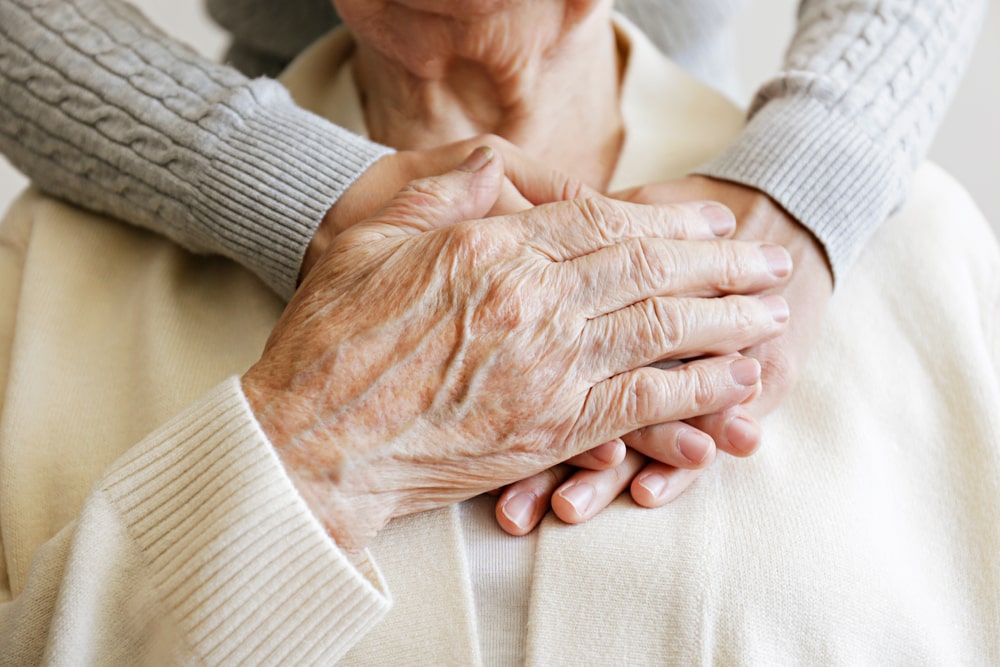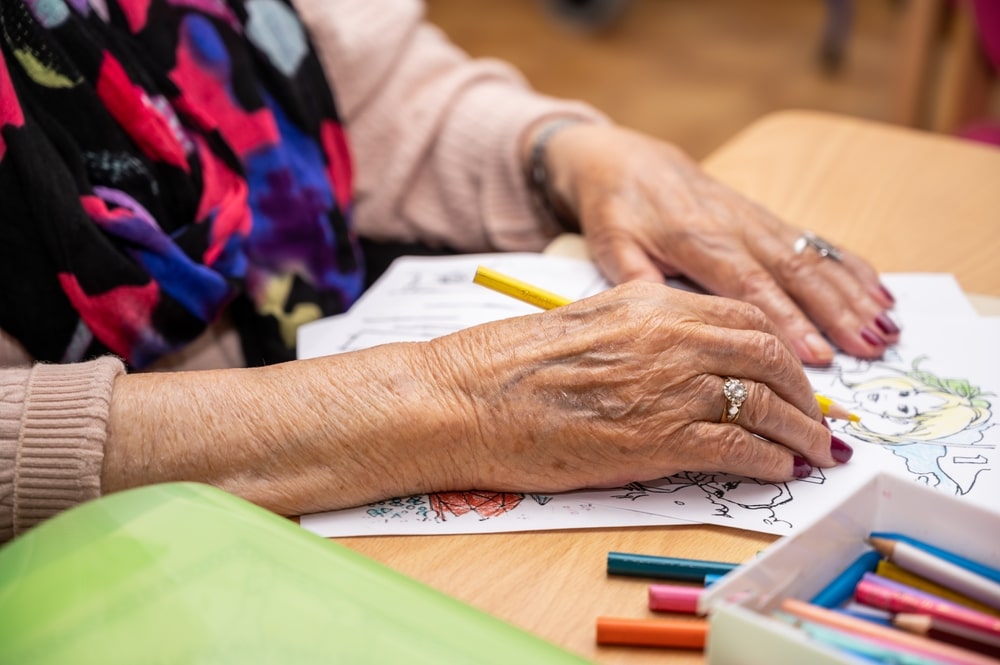You’ve just received the news you’ve been dreading ever since you had that first appointment: your medical condition is terminal. Right now, you may be feeling so many emotions – shock or disbelief chief amongst them. Even as you grapple with your feelings, you’re faced with an exceedingly difficult challenge: accepting that you are dying while striving to make the most of your days. In this article, we will discuss how to process the reality of your terminal diagnosis while also finding a way to continue to live fully even though you are dying.
Processing & Accepting the Reality of Your Diagnosis
The initial shock of your diagnosis may have faded, or it could still be front and center. Take a few days to allow the strength of your emotions to abate a little. Then, for both your own sanity and your family’s, start processing through your new reality so that you can make the most of your final days.
1. Acknowledge You Are Dying
Acknowledging you are dying is the first step to living the rest of your life. If your illness was sudden or unexpected, you’re going to deal with shock, disbelief, or numbness at first. This is a natural and necessary response to painful news. Don’t try to deal with everything at once; take your time. At first, you will understand everything with just your head, but in time, you will come to understand it with your heart.
To acknowledge you are dying is to let go of the future. It is to live only in the present. There is no easy way to do this, and you will probably struggle with this every day. However, by acknowledging and not denying the reality of your coming death, you will open your heart and mind to the possibility of a new, rich way of living.
2. Question the Meaning of Life
Discovering that you are dying naturally makes you take inventory of your life. You have a right to have questions, fears, and hopes. Illness often establishes a new direction for our lives and makes us question some of our old habits. New thoughts, feelings, and action patterns will begin to emerge; embrace them. The unknown invites you to question and search for the meaning of your life, in the past, present, and future.
3. Accept Your Response to the Illness
Each person responds to news of terminal illness in their own way. You, too, will have your own response. You may feel fear, excitement, anger, loss, grief, denial, hope, or any combination of emotions. By becoming aware of how you respond right now, you will discover how you will live with your terminal illness. Don’t let others tell you how you feel. Instead, find people who encourage you to teach them how you feel. After all, there’s no right or wrong way for you to think and feel.
4. Respect Your Own Need to Talk or Stay Silent
You may find that you don’t want to talk about your illness at all. Or you may find that you want to talk about it with some people, but not with others. In general, open and honest communication is a good idea. When you make your thoughts and feelings known, you are more likely to receive the kind of care and companionship you need.
But if you don’t want to talk about your illness, don’t force yourself. Perhaps you will be able to open up more later on, after you have lived with the reality of your illness for a time.
5. Tell Your Family and Friends You Are Dying
As hard as it may be, your family and closest friends deserve to know that you are dying. Tell them when you feel able to. If you simply cannot bring yourself to tell them, ask a compassionate person you trust to share the news on your behalf.
Just as every terminally ill person reacts differently to a diagnosis, each family member or friend will react differently to your news. Some will sit in shock, cry, or refuse to believe it. Others will spring into helpful action by running errands for you, offering to clean your house, etc.
Many will not know how to respond. Because they don’t know what to say or do, or because your illness reminds them of their own mortality, they may even avoid you altogether. Please know that their apparent abandonment does not mean they don’t love you. Give them time to process.
Make sure not to neglect telling children. They, too, deserve to know. As with all people, children can cope with what they know. They cannot cope with what they don’t know. Be honest with them as you explain the situation in language they will understand. Don’t overexplain but do answer any questions they may have.
6. Be an Active Participant in your Medical Care
Many people are taught to be passive recipients of the care provided by medical experts. But don’t forget—this is your body, your life. Don’t fail to ask questions that are important to your emotional and physical well-being out of fear that you will be “taking up someone’s time.”
Learn about your illness. Visit your local library and consult the medical reference books. Request information from educational associations, such as the National Cancer Institute or the American Heart Association. Ask questions of your doctor, home health or hospice nurses, and other caregivers.
If you educate yourself about the illness and its probable course, you will better understand what is happening to you. You will be better equipped to advocate for personalized, compassionate care. You may not be in control of your illness, but you can and should be in control of your care.
7. Be Tolerant of Your Physical and Emotional Limits
Your illness will almost surely leave you feeling fatigued. Your ability to think clearly and make decisions may be impaired. And your low energy level may naturally slow you down. Respect what your body and mind are telling you. Nurture yourself. Get enough rest. Eat balanced meals. Lighten your schedule as much as possible.
8. Say Goodbye
Knowing you will die offers you a special privilege: saying goodbye to those you love. When you feel you are ready, consider how you will say goodbye. You might set aside a time to talk to each person individually. Or, if you are physically up for it, you might have a gathering for friends and family. Other ways of saying goodbye include writing letters, creating videos, and passing along keepsakes. Your survivors will cherish forever your heartfelt goodbyes.
9. Find Hope & Embrace Your Spirituality
When people are seriously ill, we tend to get caught up in statistics and averages: How soon will the illness progress? How long do I have left? These can be helpful to know, but they don’t always provide spiritual and emotional comfort.

Even if you are certain to die from this illness, you can find hope in your tomorrows, your next visit from someone loved, your spirituality. Hope means finding meaning in life—whether that life will last five more days, five more months, or five more years.
If faith is part of your life, looks for ways to express it. You may find comfort and hope in reading spiritual texts, attending religious services, or praying. Allow yourself to be around people who understand and support your religious beliefs. If you are angry at God because of your illness, that’s okay; it’s a normal and natural response. Find someone to talk to who won’t be critical of whatever thoughts and feelings you need to explore.
10. Reach Out for Support
While you may have been raised to be fiercely independent, confronting a terminal illness cannot and should not be done alone. As difficult as it may be for you, you must reach out to others, specifically the people you feel most comfortable with in stressful times. Give yourself permission to reach out for prayers, support, and practical assistance.

Additionally, hospices are an indispensable resource for you. They are well-staffed and trained to help both the dying person and the dying person’s family. Their mission is to help the dying die with comfort, dignity and love, and to help survivors cope both before and after the death. Whatever you do, don’t isolate yourself and withdraw from people who love you.
You still have a journey ahead of you – as you learn to accept and live with your diagnosis. Hopefully, these words have given you hope and a place to start as you process through your feelings and decide how to live the remainder of your days with purpose and intentionality.
*Based heavily on a brochure by Dr. Alan Wolfelt called Helping Yourself Live When You Are Dying. Dr. Wolfelt is a respected author and educator on the topic of healing in grief. He serves as Director of the Center for Loss and Life Transition and is on the faculty at the University of Colorado Medical School’s Department of Family Medicine. Visit www.centerforloss.com to learn more about the natural and necessary process of grief and mourning and to order Dr. Wolfelt’s books.









